By Debo Oladimeji
Health officials in Nigeria have reportedly issued a warning over chloroquine after about three people overdosed on the drug, in the wake of President Trump’s comments about using it to treat coronavirus.
Three people were hospitalized in Lagos after taking the drug. Officials later issued a statement cautioning against using chloroquine for Covid-19 treatment.
Governor Jide Sanwoolu’s SSA on Health, Dr Oreoluwa Finnih urged people against massive consumption of Chloroquine as a measure to fight coronavirus.
US President Donald Trump claimed at a White House briefing last week that the Food and Drug Administration had approved the “very powerful” drug chloroquine to treat coronavirus.
“It’s shown very encouraging — very, very encouraging early results. And we’re going to be able to make that drug available almost immediately. And that’s where the FDA has been so great. They — they’ve gone through the approval process; it’s been approved. And they did it — they took it down from many, many months to immediate. So we’re going to be able to make that drug available by prescription or states,” Trump said.
He added: “Normally the FDA would take a long time to approve something like that, and it’s — it was approved very, very quickly and it’s now approved, by prescription.”
However, the FDA after the briefing issued a statement saying it had not approved the drug for use against Covid-19 and is still studying its effectiveness against the disease.
T rump’s endorsement of the drug led to a surge of interest among Nigerians keen to stock up on the medication, which has led to inevitable price hikes in the megacity of around 20 million inhabitants.
One man said that in a pharmacy near his home on the Lagos mainland, he witnessed the price rise by more than 400% in a matter of minutes.
Kayode Fabunmi, a Lagos-based lawyer, said: “The pharmacist knew the market and was saying to every incoming customer, ‘You know Donald Trump has said this thing cures coronavirus,’ and the price kept changing.
“The original price was 200 naira (around 50 cents), then it became 500 naira ($1.38) then it became 1,000 naira ($2.77) while I was there,” he said.
The Lagos State Health Ministry issued a brief statement saying there was no “hard evidence that chloroquine is effective in prevention or management of coronavirus infection.”
Chloroquine is used to treat malaria, lupus and rheumatoid arthritis.
Malaria is an endemic disease in Nigeria and other parts of Africa and for many years, it was common to treat it with chloroquine. However, at least 40 African countries, including Nigeria, have phased it out as a frontline antimalarial drug and replaced it with other drugs following widespread resistance to it.
A study in France published on March 20 in the International Journal of Antimicrobial Agents described the treatment of 42 patients hospitalized with COVID-19, 26 of whom received a version of chloroquine called hydroxychloroquine and 16 of whom received routine care. Of the 20 patients who took the antimalarial and completed the study, six also received azithromycin, an antibiotic.
All six of these patients were free of SARS-CoV-2 by the fifth day post-treatment, while seven of 14 patients who took hydroxychloroquine alone were negative for the virus, and two of 16 control patients were no longer infected.
Small-scale experiments in which chloroquine has been given to COVID-19 patients in China and Australia have also shown encouraging results as far as shortening the course of the disease.
Larger clinical trials will be necessary to determine how effective the drug is.
While doctors in China, the United States and other countries have used the drug experimentally in Covid-19 patients, there is not yet enough clinical evidence that it’s effective in humans or the management of the disease.
Dr. Michel Yao, Africa emergency response program manager for the World Health Organization, told CNN there are 20 drugs and the same number of vaccines under clinical trial, and it is too early to make recommendations about the efficacy of any for the treatment of the virus.
“The WHO’s position is clear. Any medication should be based on evidence. We don’t have yet any evidence from any of these trials that would allow WHO to do a formal recommendation. All these are in progress, so it is difficult for us to recommend at this stage that any of the medicine can be of use for the treatment of coronavirus,” Yao said.
“It is too early to rush to the decision that chloroquine … at least for WHO to recommend it for
Severe itching was one of the side effects of using chloroquine to treat malaria.
For two, three days you will be itching. You dread having a bath, you will scratch and scratch and you would have to take piriton (an antihistamine) alongside it. It’s also very bitter. If you make the mistake of letting it drop in your mouth, you will feel the taste for a long time.
Nigeria as of today has of Wednesday reported 46 cases of Covid-19.
According to the World Health Organisation (WHO), the Centers for Disease Control and Prevention (CDC) and the US Food and Drug Administration (FDA), there are no medicines/vaccines to-date approved and proven and to be effective in the treatment of Corona virus/Covid-19.
Different opinions have been circulating about the use of drugs especially Chloroquine and Hydroxychloroquine for the treatment of Corona virus /Covid-19 pandemic suggesting that either drug is useful for prevention or treatment.
Below is a summary of the current evidence regarding use of drugs for treatment/prevention of corona virus/covid-19.
Chloroquine and Hydroxychloroquine are approved drugs in the USA and other countries for mainly Malaria and Arthritis respectively and the FDA and other Drug authorities are only currently evaluating the evidence linking any drugs including chloroquine/hydroxychloroquine to improvement of outcomes in patients with Covid-19.
The approval process usually includes pre-clinical laboratory and animal studies, clinical trials in humans for safety and efficacy and review of an application for approval by a competent drug authority to ensure that the drug works correctly and consistently and that its benefits outweigh its risks to the population.
This review process usually lasts up to 2 years but can be expedited to within a few months for promising therapies that treat a serious life threatening disease like covid-19.
Numerous clinical studies have been conducted globally regarding the performance of Chloroquine and its variant Hydroxychloroquine since the beginning of the pandemic.
Most recently a French study and earlier studies in China have shown that these drugs may have positive effects when used in patients with covid-19. Earlier evidence suggests that Hydroxychloroquine is more potent than Chloroquine and may therefore be used in smaller doses.
Usage of these two drugs in countries where they have been tried has mainly been restricted to patients through compassionate use in hospital settings. Compassionate use of a drug refers to the use of a promising unapproved drug to treat a seriously ill patient when no other treatments are available.
This is mainly availed to patients participating in an investigational study known as a clinical trial.
It should be remembered that Chloroquine as drug has a narrow therapeutic window i.e the difference between the effective and toxic doses is small and may cause life-threatening cardiac toxicity/arythmias especially when used in high doses for long.
Whereas chloroquine may be relatively safe at lower doses and in pregnancy, inappropriate self-use may also stimulate malaria resistance. Patients/clients should therefore be adequately informed of these concerns especially potential toxicities and the uncertain efficacy.
Access to these drugs should not divert the public from optimal supportive care for any patient and preventive and control measures as prescribed by the ministry of Health that have shown favorable outcomes.
Chloroquine/Hydroxychloroquine should not be used in patients with heart problems associated with QTc prolongation, Myasthenia gravis, retinal pathology, porphyria, epilepsy and patients on certain drugs like mefloquine, cimetidine e.tc
Other anti-viral drugs that have been tried for treating covid-19 include remdesivir (not available locally in Uganda) and an Anti-HIV drug Lopinavir/ritonavir (Aluvia/Kaletra).
Concerns have also emerged about theoretical interferences between receptors used for corona virus entry and some medicines such as anti-hypertensive drugs called Angiotensin Converting Enzyme (ACE) inhibitors,/Angiotensin receptor blockers (ARBs) as well as non-steroidal anti-inflammatory drugs (NSAIDs) and corticosteroids.
Anti-hypertensive drugs e.g ACE inhibitors/ARBs
There is so far no scientific evidence to date to support the assertion that treatment with a class of anti-hypertensive drugs like losartan could predispose individuals to a higher risk of covid-19 or adverse effects when infected with covid-19. It has therefore been the position of several scientific and professional societies that patients should continue their ACE inhibitors and ARBs unless specifically advised to stop by their medical teams.
The management of Corona virus/covid-19 symptoms may involve the use of antipyretics and/or anti-inflammatory drugs for fever and mild pain. Currently there is no conclusive evidence to establish a direct association between the use of non-steroidal anti-inflammatory drugs (including ibuprofen) and increased risk of infection with corona virus/covid-19 or severity of disease. Notwithstanding, other medicines such as paracetamol should be as first choice for the management of fever in covid-19 patients.
Corticosteroids are not recommended for viral pneumonia and acute respiratory distress syndrome and should be avoided because of potential for prolonging viral replications.
Chloroquine has a long track record in medicine, having been used since the 1940s as an antimalarial. The modern drug is made from the bark of the Cinchona plant, which was taken as an herbal remedy by indigenous Peruvians four centuries ago to treat fever. And there are some early indications it could work against SARS-CoV-2 infections.
There’s often a huge gap between how it works in the lab cells and how it works in the body.
Researchers at the University of Minnesota have embarked on a study including 1,500 people to probe the drug’s effectiveness further in preventing the development of COVID-19 after people are exposed to SARS-CoV-2. The results could be available in a matter of weeks, Jakub Tolar, the dean of the University of Minnesota Medical School and vice president for clinical affairs, tells Reuters, and might indicate whether it’s worth launching a larger trial.
A small trial of 1,500 people would be a pragmatic step towards verifying the drug’s efficacy, says Jeremy Rossman, a virologist at the University of Kent, who praises the approach.
A number of other chloroquine experiments on humans are in the works. According to clinicaltrials.gov, researchers at the University of Oxford plan to give it as a prophylactic to 10,000 health care workers and others at high risk of contracting SARS-CoV-2. In Norway, doctors expect to begin administering the drug to hospitalized patients. And in Thailand, clinicians are preparing for a clinical trial comparing various combinations of antivirals, including chloroquine.
If chloroquine is shown to be effective against SARS-CoV-2, it will not be via the same mechanism by which the drug functions as an antimalarial. That’s because malaria is caused not by a virus but by a microparasite of the Plasmodium genus. Chloroquine makes it toxic for the parasite to digest its host’s hemoglobin.
Chloroquine might have entirely different effects against a virus, such as, for example, disrupting the virus’s ability to enter a cell.
Nabil Seidah, a molecular biologist at the Montreal Clinical Research Institute (IRCM), and colleagues examined chloroquine’s effect on SARS-CoV back in 2005. Seidah is currently experimenting with drugs including chloroquine as potential SARS-CoV-2 treatments and using material sent to him by pharmaceutical firms.
His 2005 study reported “strong antiviral effects” in animal cells in vitro. Seidah tells The Scientist that the mechanism by which chloroquine disrupts infection by a coronavirus remains unclear.
Chloroquine can raise the pH of endosomes, vesicles inside cells that are hijacked as points of entry by viruses. Endosomes have a slightly acidic pH, which helps facilitate this process. Seidah explains that chloroquine can raise endosomic pH slightly, which prevents fusion and stops the virus from entering the cell. Seidah says chloroquine may also block enzymes involved in the fusion between the virus and lung cells or stymie the viral replication process.
Whatever the mechanism, Seidah says, it’s likely a combination of drugs of some kind that will, ultimately, be needed to treat COVID-19.
“Chloroquine alone will not solve the problem,” he says.
The drug is potentially dangerous when used at high doses or for prolonged periods. It can cause permanent blindness and even death. Rossman and Seidah agree that larger clinical trials are a must before chloroquine is considered safe and effective as a treatment for COVID-19.
There’s no question the need for effective treatments is urgent. Cases of Covid-19 are exploding, with more than 10,000 in New York State alone. Actual numbers may be far higher. Reports say that New York hospitals are full with patients on ventilators who need treatment now.
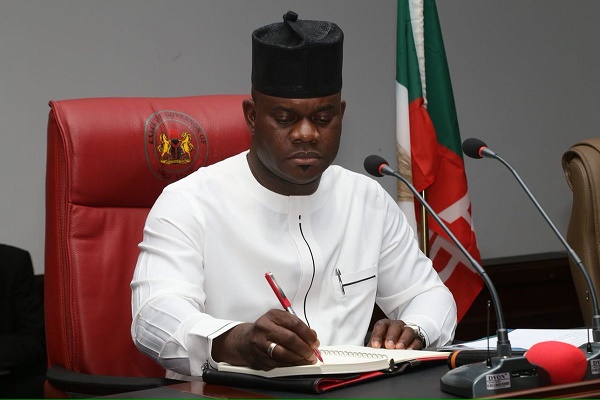
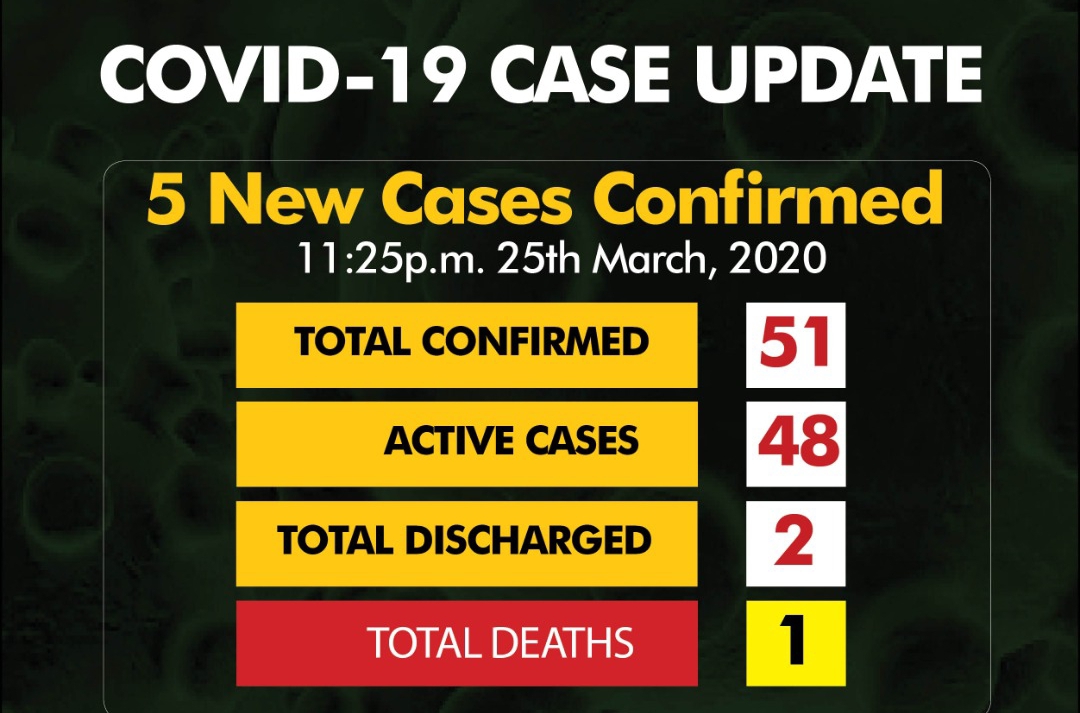
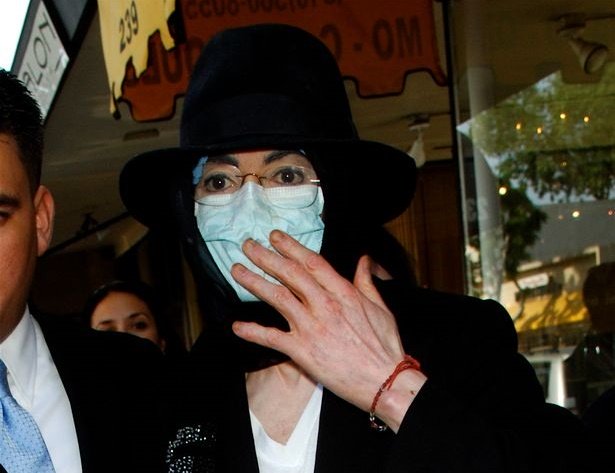
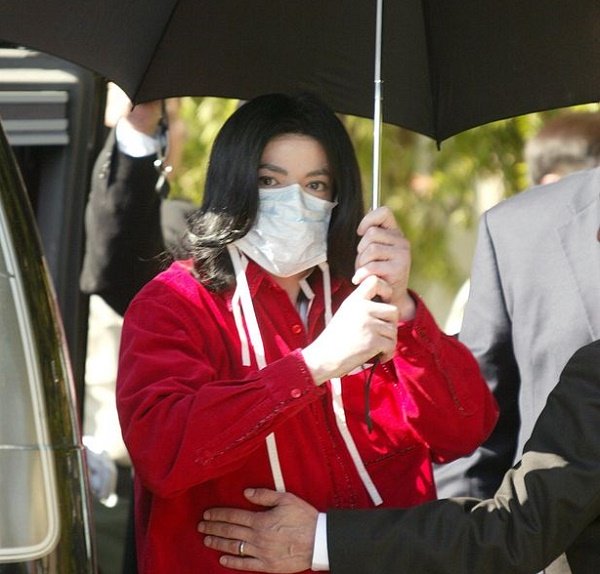
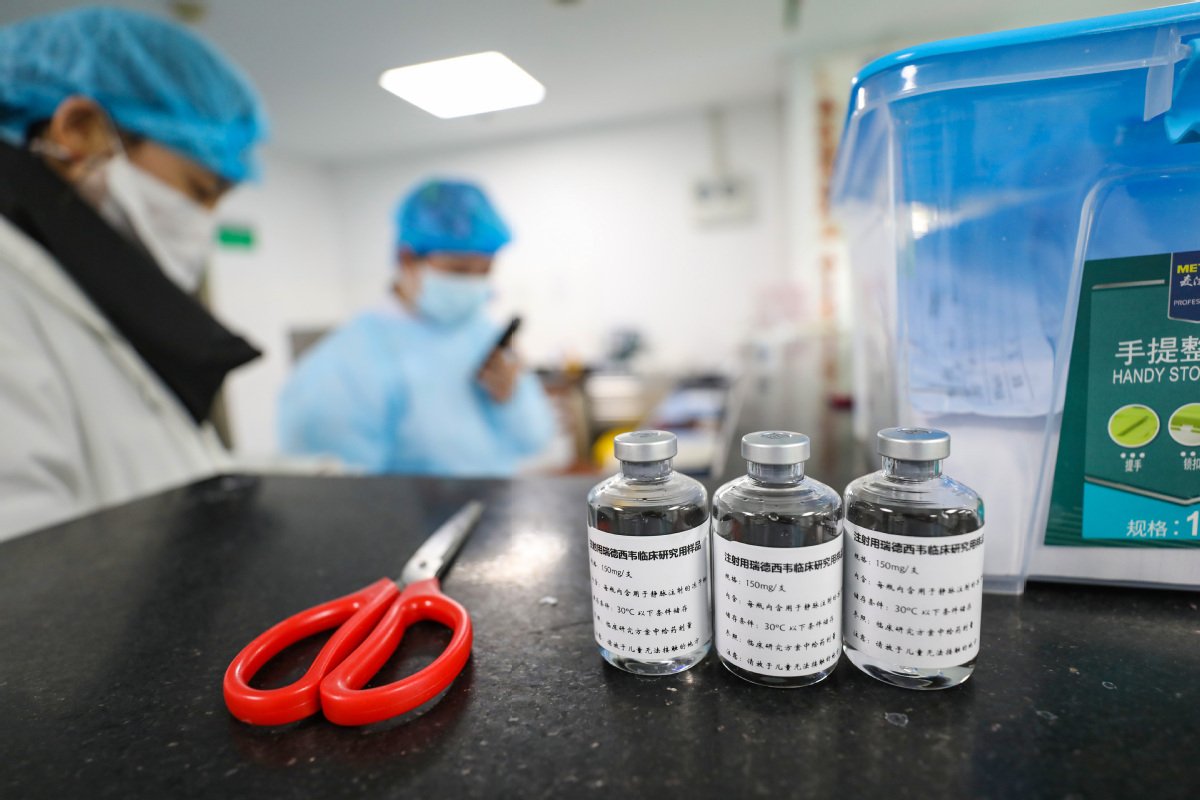
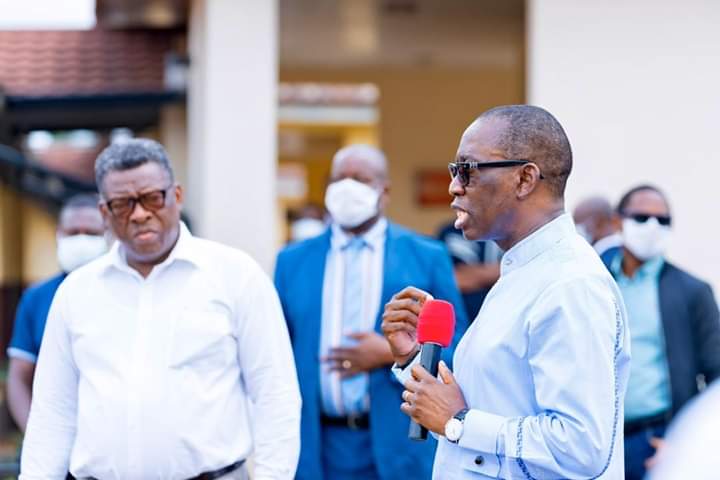
![Exclusive: [Video]Those who wish me Covid-19, will have HIV](https://thenewsguru.ng/wp-content/uploads/2017/06/Yahaya-Bello-Explains-1.png)